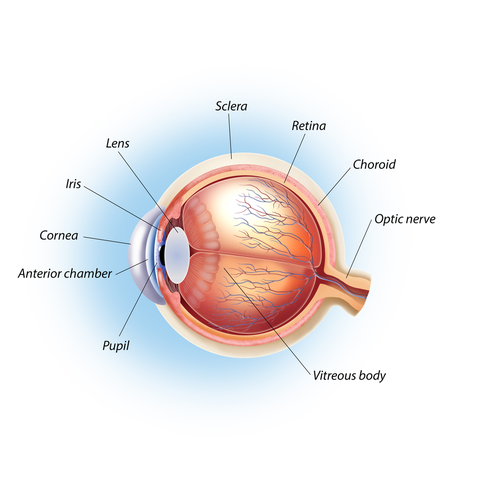Rupture of Eye’s Lens Capsule Is Rare and Avoidable Risk in Alport, Case Report Argues

Spontaneous rupture of the anterior lens capsule of the eye is a serious complication of Alport syndrome that can be prevented with timely and proper care, a case report published at Open Access Macedonian Journal of Medical Sciences highlights.
Alport syndrome, a progressive disorder, is caused by genetic mutations affecting the genes that encode the type IV collagen protein. Collagen IV is a main structural component of basement membranes, the thin layer that separates inside from outside spaces in organs.
This particular protein is essential to maintain the normal structures of glomerulus (kidney’s filtering units), the cochlea in the inner ear, and the eye’s retina, lens capsule, and cornea. For these reasons, patients with Alport syndrome often experience kidney failure, hearing loss, and vision problems.
Ocular symptoms are rare in younger patients but become more frequent and severe with age, suggesting a cumulative and progressive effect. Typically, problems occur in the lens and the retina, and more rarely in the cornea.
In the article “Spontaneous Anterior Lens Capsule Rupture Of a Patient with Alport Syndrome – A Case Report,” a team of researchers at Trakia University, in Bulgaria, described the case of a 16-year-old boy with Alport syndrome whose anterior lens capsule spontaneously ruptured. (The lens capsule, or lens, is the transparent structure behind the iris or colored part of the eye.)
The teenager, diagnosed with Alport at age 7, arrived at the hospital complaining of pain, redness, and poor vision in his right eye. He had no evidence of trauma to his head or eye and had never been examined by an ophthalmologist.
Initial evaluation of the right eye found the rupture in the anterior, or front, capsule, with swollen and opaque lens particles evident. This significantly affected the eye’s response to light. Fluid was also accumulating in its structures, and intra-ocular pressure was elevated. The left eye showed some degree of opacity due to a cataract.
Surgery was done to remove the ruptured lens particles, and a synthetic intraocular lens was placed on the eye. Eye pressure returned to normal levels the next day, although a few particles were still evident. At a one-month follow-up visit, the teen showed significant improvement of the eye’s acuity, or vision, with no alterations to the eye’s main structures or signs of lens particles.
Anterior lens capsule rupture is rare in children with Alport; only three other cases have been reported.
Previous studies have shown that a decrease in the thickness of the anterior lens capsule in Alport patients, and changes in the network of vessels in its inner part. Both can contribute to an increased fragility, and complications.
“Taking good care of a patient with Alport syndrome needs the interprofessional collaboration of nephrologists, ENT [ear, nose and throat] doctors, and ophthalmologists,” the researchers said. “A timely consultation with an ophthalmologist needs to be considered every time a patient is diagnosed with the disease to avoid the wrong diagnosis of unexpected complications.”







Leave a comment
Fill in the required fields to post. Your email address will not be published.